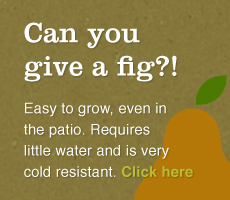How To Forage Seasonably in Hampshire
How To Forage Seasonably in Hampshire For Greater Success
Last year only 49% of the food consumed in the UK was from a local producer, meaning over half of your food was sourced abroad. Yet, there are so many food options, and hundreds are right on your doorstep. Around 23% of the 350,000 plant species in the world are edible for humans. Pre farming-revolution, humans sustained themselves by sourcing and gathering resources from the natural environment. Today, foraging isn’t just a survival tool for if you get lost in the New Forest; it is also a healthy and increasingly mainstream hobby which can be enjoyed in both urban and rural parts of Hampshire, with many edible plants that can be grown in your own garden. With good knowledge and understanding, you can incorporate foraging into a healthy diet and lifestyle all through the year.
Know what is edible
Being a sensible forager should be the first item on the agenda; there can be some quite serious and dangers effects. Some plants, although they may look harmless enough, can be poisonous when consumed, so it is highly important that you understand which plants are edible. Although it isn’t native to Hampshire, Hemlock is one such plant that can be encountered on your local forage; it looks deceptively similar to edible plants, but if consumed has serious and even fatal effects. The New Forest is teaming with edible fungi, but there are also particular species that are poisonous when consumed. Study and research before you embark on a forage, to know what is edible and what isn’t. Take a local guidebook with you so that you can spot-check any plants or flowers you are uncertain of. If in doubt, steer well clear.
Be aware of seasonal changes
During different times of the year certain varieties of plant species may or may not be available. This can affect your forage as if you aren’t prepared to look for certain plants, flowers or fruit, you may miss them completely. Take into consideration the predicted weather conditions, and dress appropriately for a more successful forage – there is nothing like feeling cold and wet to put an early stop to a forage. It is still possible to forage successfully even during winter months – nuts are particularly abundant in colder winter months. Acorns are filled with vitamins and minerals, and tasty chestnuts are packed with vitamin C and potassium. Otterbourne Park Wood is particularly abundant in elderberries at the end of summer, and you can even enjoy cherries mid-July.
Explore your location
Hampshire is a beautiful area and is ideal for foraging; Queen Elizabeth Country Park is 1400 acres of large natural woodlands making it an excellent breeding ground for edible plants, and Linwood is dotted with water-ways making for fertile soil conditions. Be a conscious and respectful forager, and avoid over-foraging in one area as this can lead to imbalances within the local eco-system. By moving around you give the land time to recover and in this way you forage more sustainably. The other plus side to exploring is that you will encounter a greater variety of edible plants, fruits and flowers. This also means that you can actually tune in better with the local environment; everything you consume from the land contains lots of information about the local eco-climate. During digestion your immune system reads and uses this information to build up its defenses, resulting in a healthier body and strengthened immune system.
Foraging is a highly enjoyable activity; it connects you with nature, is a great form of exercise and actively engages your brain. By foraging sensibly, you will have a great chance of success and in return you will experience a wealth of new flavours and may even find yourself being more adventurous in the kitchen.

